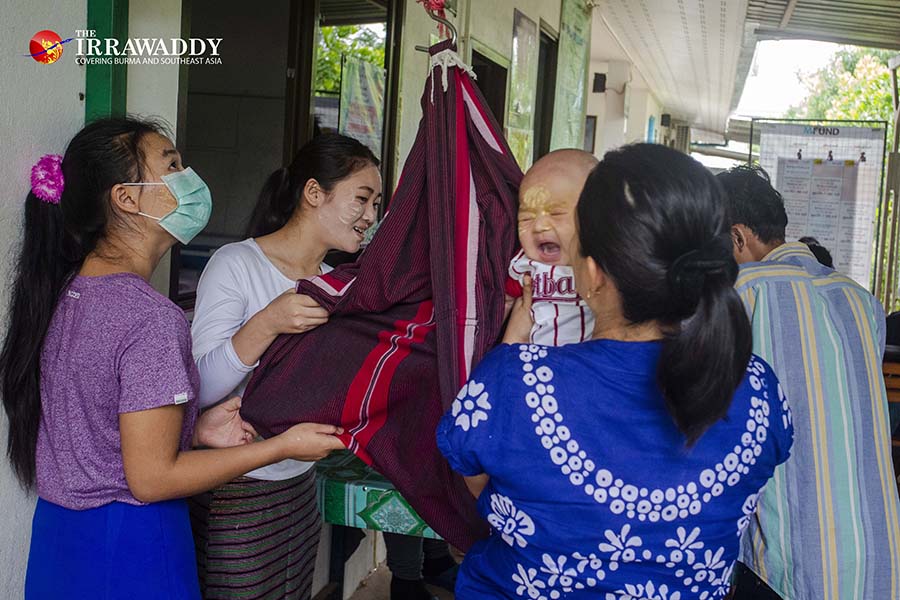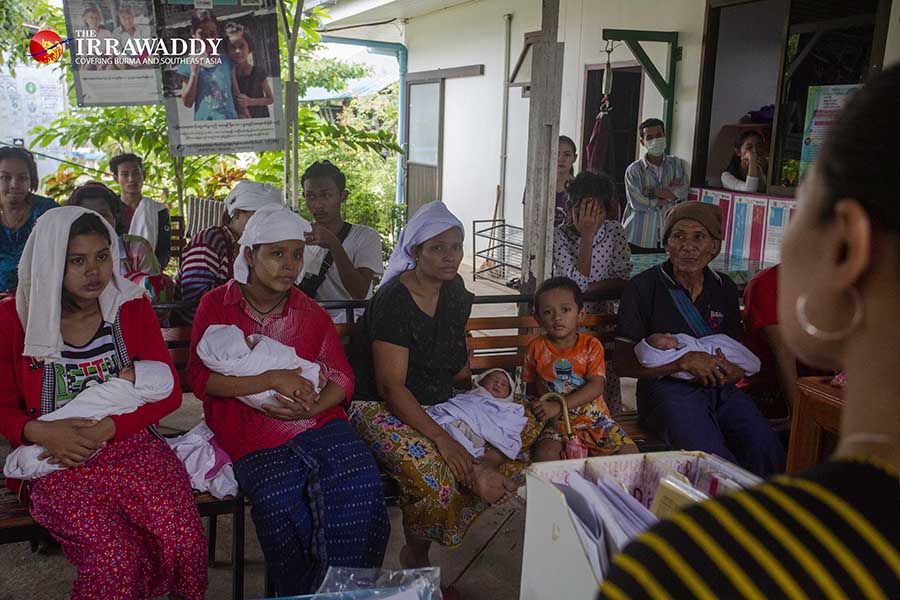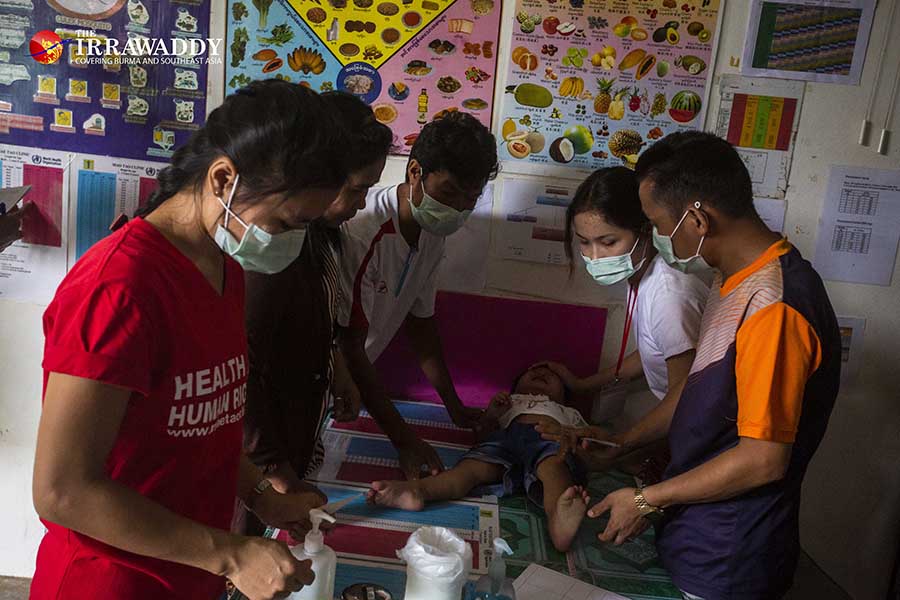MAE SOT, Thailand—Thirty years ago on June 22, Mae Tao Clinic was cofounded by six people as an emergency medical relief center to help wounded soldiers of the once-outlawed Student Army (the All Burma Students’ Democratic Front) in a small house in Mae Tao village of Mae Sot, Tak province, in Thailand. Years later, the clinic continues to serve people in the community, the majority of whom are Myanmar migrant workers. It has provided healthcare services to tens of thousands of people in its three decades of operation.
Mae Tao Clinic is also a key health center for pregnant women, mothers with newborn babies and patients with chronic illnesses. For the past 30 years, countless women have had to rely on the clinic for child delivery, blood tests, access to reproductive health knowledge including family planning, child vaccinations and registration of birth certificates.

Ma Toe Toe Lwin, a mother of four, was in line waiting at the Mae Tao Clinic on Wednesday morning to get her 2-month-old twin daughters vaccinated. She was one of several dozen mothers with small babies seeking vaccinations for their children. She came from a plantation site in a remote village of Mae Sot, where she and her husband work as migrant workers.
For people like her, Mae Tao Clinic is the only healthcare facility where they can get treatment or get vaccinated.

“I live far from the clinic but the local [Thai public] clinic which is near my home told me to come here when I tried to get the vaccinations there, so I came. Coming here costs me more than 1,000 baht [about US$32], but I needed to come,” she said.
Dr. Cynthia Maung, the chief founder of the Mae Tao Clinic, said the clinic would continue providing services to patients along the Thailand-Myanmar border, as well as providing training to the medics and cooperating with civil society groups despite its shrinking funding.
Since 2012, after funding assistance to border-based healthcare service providers and refugee-relief groups was cut, the clinic has continued to manage its operations by reducing its staff members’ salary to 80-85 percent of their former levels. Before that, the clinic’s fundraising covered 70 percent of total costs, she said, but now fundraising only covers some 30 percent of the operational costs.
“Many obstacles still exist regarding the heath-care services for the migrant and marginalized community along the border. There are many people who could not get access to healthcare and who are neglected; thus Mae Tao Clinic will continue its services. In the meantime, we will continue our training, capacity building and awareness raising,” she told The Irrawaddy.

Some of the treatment programs like eye treatment and prosthesis leg implants have been reduced from full to partial services.
The prosthesis department was started at the clinic in 2000 to provide prosthetic limbs to the area’s many victims of landmines. In the past two decades, the department has also helped other victims of accidents, as well as diabetes patients and disabled people.
Ko Hla Tun, 38, who makes prostheses for patients, is himself a landmine victim. Eighteen years ago, he lost his right leg by stepping on a mine while searching for vegetables in the jungle near his Wah Tho Soe village in Papun Township.
He arrived at Mae Tao Clinic in 2004, and received training on making prosthetic limbs and was soon helping others to get artificial limbs.
He told The Irrawaddy that if he could no longer work at the clinic due to the prosthesis department closing, he would find a new job, though he wasn’t sure what that would be.
Dr. Cynthia Maung said the Mae Tao Clinic will shut down its prosthesis department in May 2020 as people inside Myanmar now have more access to prosthesis workshops supported by the International Committee of Red Cross.
Despite the challenges, she shared her pride that the Mae Tao Clinic has been able to provide treatment to so many patients, serve as a training center for thousands of medics and researchers, and build a strong network with civil society groups and governments. Dr. Cynthia Maung expressed her thanks to all those people who have contributed to the existence of the clinic.
“Many individuals and groups, both from the border areas and from the international community, have contributed a lot to the success of the clinic. We honor you. We thank you. Every success of the Mae Tao Clinic belongs to all of us.”
You may also like these stories:
Dr. Cynthia Maung Wins UNDP’s N-Peace Award
‘Women in Leadership Positions Must Speak for All Women’
Scores of Orphaned Migrant Children Granted Thai ID Cards

















